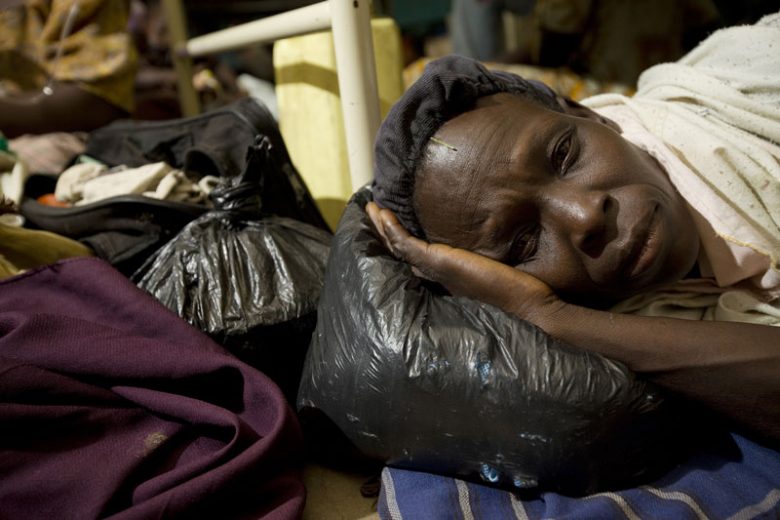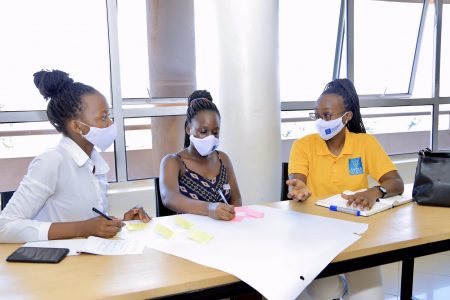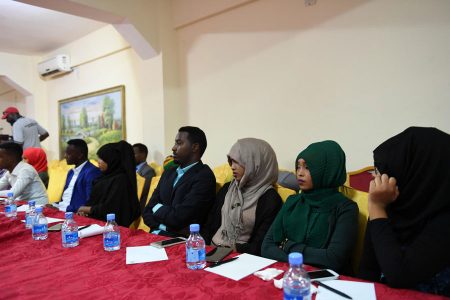“I was a very violent man who would drink a lot and batter his wife,” says Michael Ali, 38, from Coo-pee village about 8kms out of Gulu town.
But Ali says he is now a changed man; he is among men now referred to as a ‘‘model Man’’ after undergoing training by Gulu Women Economic Development and Globalization (GWED- G), a Gulu-based NGO working to stop gender based violence.
In northern Uganda, violence against women remains rampant. But it is not only women suffering—men too are, albeit silently for fear of being mocked by a society which views the man as the stronger sex.
But some men are beginning to speak out about the violence they suffer in the hands of their wives. One of them is Fred Odill, 38, a resident of Purongo in Nwoya district.
‘‘She hit me at will,’’ said Odill who claimed his wife had turned to her ‘‘toy to play with.’’ Odill attributes the violence he suffers in the hands of his wife to his physical size; he’s a physically small man.
“I have tried to take her before the Local Council (LC) Court but it’s not helping because no punishment is given to her. I have plans of reporting the matter to police in Anaka Town but I am scared that they will make fun of me.”
John Oola, the LC1 chairperson of Pawat Omeru west village, Odill’s village, told this writer that his office had made attempts to mediate between Odill and his wife.
Mr Oola observed that most of the cases of violence against men occurs during harvest season when some men want to sell foodstuff produced by the family to fund their drinking.
“The man would always want to sell harvests and use the proceeds for drinking which eventually results into physical fights in family,’’ says Geoffrey Oyat of GWED- G, the Gulu-based NGO.
To some—that women are putting up fights to stop the sale of jointly produced farm products is an indicator that women are becoming more aware of their rights and in a changing context in which men and women are both working had to take care of their families.
“Women have now discovered their rights. Men feel intimidated by it,’’ is how Nwoya district Chairman Okello Patrick Oryema put it.
A fight against gender based violence
Michael Ali, the 38 year old ex-wife beater from Coo-pee is in his community known as the model man. He is, says Geoffrey Oyat of GWED-G, a demonstration of the efforts that organization like GWED- G are putting in place to fight gender based violence.
Ke Kwaro Acholi, the Acholi cultural institution is also among those in the forefront of fighting sexual based gender violence. In 2010, says Balmoi Caide Okello, the gender based violence focal point at Ker Kwaro says the institution has produced a book titled: Acholi Relationship Principlesaimed at promoting the rights of women in the eight Acholi districts.
But the fight against gender based violence by both the cultural and formal system is hampered by an inadequacy of funds.
Gulu Chief MagistrateMr Deo Ssejjemba says the costs of travel by witnesses to testify before court has had a major setback in rendering justice to victims of gender violence because they are not able to come to court when they are needed.
Mr Ssejjemba points out at poor investigation as another challenge hindering justice for victims of gender based violence.
“Most of the cases brought here die natural death because they are not investigated well by the doctors who examine victims of gender based violence and due to long distances for the witnesses to come and testify, we end up rendering injustices to our people,” noted Ssejjemba.
Northern Uganda is still reeling from a two-decade long conflict despite it having ended more than a decade ago. The war exposed women and to an extent men to various forms of violence. In some instances victims of gender based violence are also its perpetrators.
Henry Twinomuhwezi, Assistant Court Registrar of Gulu High Court says children who were exposed to violence at a young age during insurgency in northern Uganda have come off age and are exploring what they saw as children.
Worrying statistics
Although many actors are involved in the fight against gender based violence in northern Uganda, the statistics in the region is worrying. In the last three years, according to figures from GWED-G, 3,053 gender based violence cases have been registered by the organization. Of these, 1,160 were physical assaults cases, 516 defilement and 380 cases of child neglect.
At the Gulu Central Police, department of Child and Family Protection unit over 600 cases of gender based violence was registered between March to July 2017. Of these 269 were cases of child neglect and 396 defilement. 169 cases of child neglect are before court, 26 have had convictions, 4 are pending, 39 are under inquiry while three have been disposed.
Aswa river region police spokesman whose docket covers northern Uganda attributes the high cases of gender based violence to alcohol abuse and trauma linked to the conflict in northern Uganda.
Geoffrey Oyet of GWED-G says cases of physical assault is high because it [assault] is more visible compared to other forms of violence.[:]



